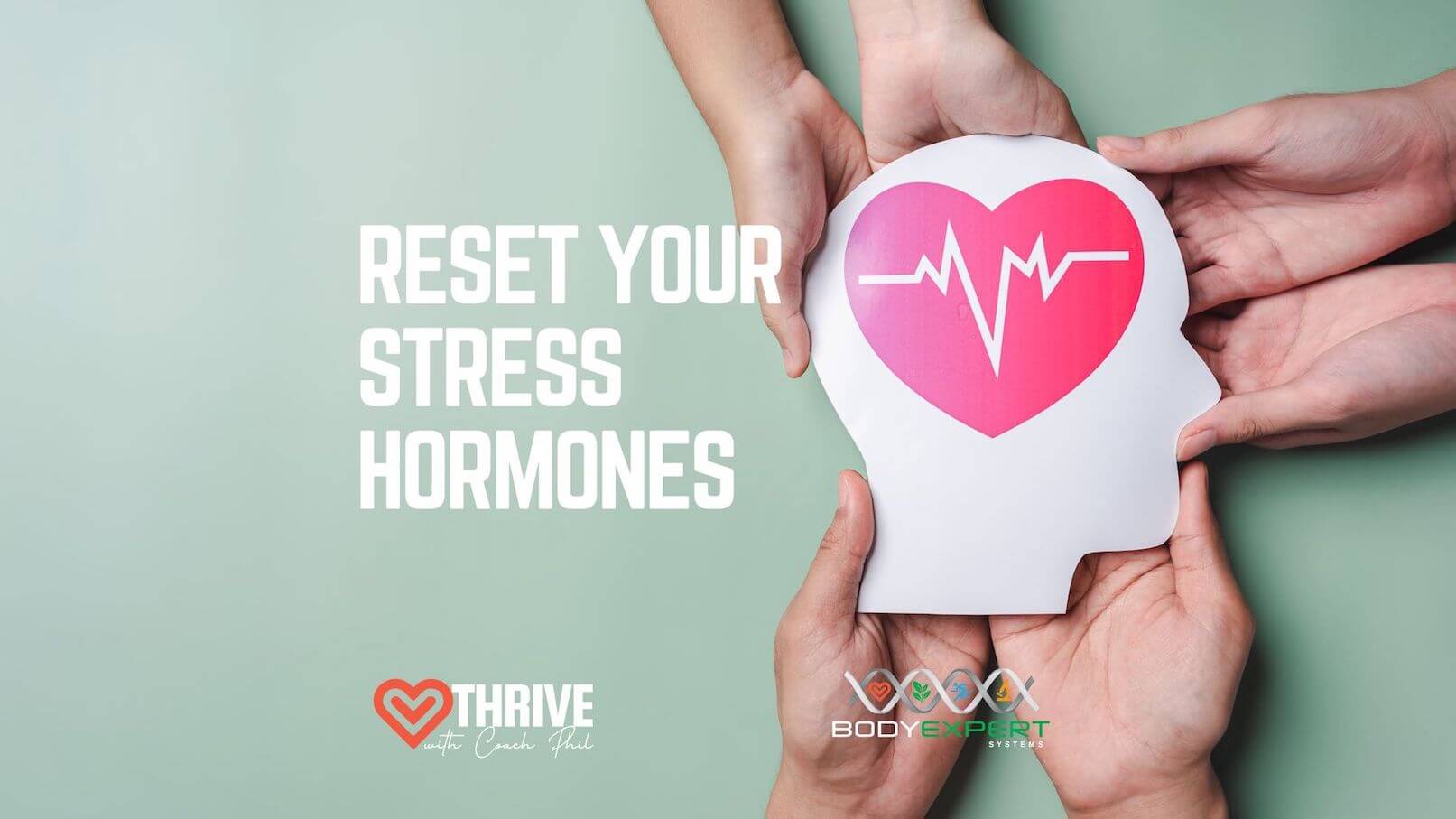Estrogen – A Modern Day Problem
Posted by Coach Phil Kelly
We are all chemical creatures. Hormones and chemicals are the body’s signals for actions and responses to our environment and activities. Hormones affect all facets of human function from enabling muscle contractions, dealing with both physical and psychological stress to stimulating fat burning and tissue repair. They tell us when we are hungry, when we are full, control metabolic rate and have a huge impact on our health.
Hormones are the real key to effortless fat loss and good health. How you live your life and dietary habits (both nutrient timing and what you eat) affect your hormone balance. When your hormones get out of balance they cause all sorts of problems. For example, estrogen dominance significantly increases the risk of cancer, can cause infertility, alters brain transmitters making you depressed or irritable and causes fat storage around the hips and upper thigh in women and produces “manboobs” in men.
Too much estrogen is a much larger problem than most people realise. The term estrogen dominance occurs when there is too much chemical estrogen in the body or an imbalance between estrogen and other hormones. There are two different ways of becoming estrogen dominant. The first is when there is too much internally produced estrogen (endogenous estrogen) within our bodies. This can be caused by simply being overweight, as fat tissue raises levels of an enzyme called aromatase changes testosterone into estrogen. Hence, more fat is created, as a result more estrogen is produced and so on and so on. The estrogen problem can be exasperated if you are deficient in magnesium, vitamin D3, selenium or zinc. These nutrient deficiencies increase aromatase considerably. Alcohol, particularly beer, has been repeatedly linked to low testosterone and high estrogen in men. If you have weak gastrointestinal health you will not be able to effectively eliminate estrogen quickly from your system, causing it to be stored in specific sites on the body. Therefore, improving gut health is a must for combating the estrogen issue.
The second way of becoming estrogen dominant is when your internal system is not causing excess production but is overloaded by external chemical estrogens (xenoestrogens). Xenoestrogens mimic estrogen and bind to hormone receptors when they enter the body. According to leading fat loss and health experts “it is nearly impossible to avoid them, and they are a principal cause of estrogen dominance”. The main chemical estrogens are BPA, phthalates, and parabens. These compounds are found in chemical fragrances such as perfume, air sprays, and candles, personal care products like lotion and moisturisers. BPA is found in everything from aluminium cans, new furniture and air pollution. Studies have shown that the more BPA people had in their urine, the fatter they are.
There are two key areas to focus on to treat estrogen dominance. First, avoid exposure to chemical estrogens by using natural personal care products, do not eat or drink food stored in cans, eat quality animal products free from pesticides and hormone treatment. Second, support the elimination of estrogen with diet. Ensure your diet is nutrient dense, eat green, avoid alcohol (or detox regularly), get adequate Omega-3, fibre, and eat low carb as excess insulin results in the elevation of free estrogen levels.
From my clinical experience estrogen dominance is becoming more prevalent and we all need to be more conscious of this issue. The best thing you can do is live healthy, so your body can easily eliminate (detox) excess amounts when needed.
Hunger
Last month we looked at estrogen dominance and how it impacts a number of health risks and causes fat storage around the hips and upper thigh in women and produces “manboobs” in men.
Hormones don’t exist in a vacuum. No single hormone can be classified as good or bad. Instead, hormone levels are constantly in flux, influencing each other as well as impacting different systems in the body. It’s when there is too much or too little of a hormone that problems can arise or when nutrients and chemicals in our diet and environment disrupt the auto-regulatory system of the body.
I want to introduce two hormones that can directly affect your weight loss and weight gain efforts. The first is Leptin.
What is Leptin
Leptin is an extremely important hormone in relation to fat loss/weight gain. Leptin is a ‘hunger hormone’… it’s job is to basically tell your brain that you are full and satisfied when eating. However, this process can be interrupted causing leptin resistance where your body no longer listens to leptin’s message resulting in overeating or not feeling full/satisfied. Stress, sleep deprivation, high calorie foods and fructose can turn your leptin response off allowing you to over eat.
Exercise and proper fat loss nutrition have the opposite effect. This is why most people can’t simply “eat less” to loose weight… they always feel hungry or their satiety level does not last long (feel the need to eat again shortly after a meal). Encouraging a good Leptin response can make fat loss feel effortless.
What is Ghrelin
Ghrelin is considered the counterpart to the hormone leptin. Think of Ghrelin as your go hormone… it should naturally increase before meals (sending hunger signals to the brain) and likewise decrease after meals helping with satiety levels. The very interesting thing about dieting is that it directly affects ghrelin function.
Research has shown that Ghrelin levels rise immediately with calorie-restricted diets for weight loss. Successfully lean people do not “diet” they “eat for fat loss”, which creates an optimal hormonal profile for long-term success. A simple fact is the more a person restricts calories, the hungrier they get! It is almost as if semi-starvation triggers gherlin to increase. The study concluded that this might be part of the reason that individuals regain weight lost, and then some, by calorie restrictive dieting.
The level of ghrelin within the body is highly dictated by the nutritional status and hydration levels of the individual. In other words, ghrelin also regulates water and fluid intake, so if you drink a glass of water when you are hungry, ghrelin signals can be satisfied and subside the feelings of hunger for a while. This provides a simple way to control your hunger. Research suggests that “one 250ml glass of water before every meal decreases the amount you will eat by at least 8 ounces and suppresses ghrelin for longer after the meal”.
To lose weight without feeling terrible and constantly hungry you need to effectively manipulate the brain’s hunger signals. Therefore, to optimise these two fat loss hormones and achieve long-term fat loss you need to reduce stress, get quality sleep, eat low GI nutrient dense foods, limit fructose and stop calorie restrictive dieting. If you do these actions you will feel great and effortlessly lose weight.
Belly Fat & Stress
In May (Part 1 – Estrogen Dominance) and June (Part 2 – Hunger Hormones) I started writing about the chemical functions of your body and how manipulating your lifestyle, diet and exercise correctly can exponentially increase your health, fat loss and fitness goals.
The third hormone that plays a major role in effecting our health, fat loss and fitness is Cortisol. If you find it extremely hard to lose fat around your midsection or have stubborn fat stores hanging on around the belly button you most likely have an issue with cortisol.
What is cortisol?
Cortisol is classified as our stress hormone. It is much more than this and in the right amounts is essential for correct bodily function. Cortisol’s many functions include helping the body use sugar (glucose) and fat for energy, gets us up and moving in the morning and helps the body manage stress. The problem is again when there is too much or an imbalance. Cortisol acts as our bodies “jet fuel” turning on our ‘fight or flight’ responses, an essential process for survival. However, cortisol is a catabolic (breaking down) hormone and if we over produce can create serious health issues.
Combatting Cortisol:
Quality Sleep
Charles Poliquin, a world leading health coach, states that getting just one hour less sleep per night than you need will alter the activity of the hypothalamus and result in higher levels of the stress hormone cortisol.
A hundred years ago we used to sleep for an average of 9 to 11 hours per night, 2 to 4 hours more than the 6-7 hour average of this era. Sleep is often given little importance in our lives, too often being sacrificed for other non-essential activities like watching TV or going out drinking.
Correct Cardio
The fact is that long bouts of cardio training at a moderate to high intensity (‘chronic cardio’) are counterproductive for fat loss. “Chronic cardio” does not stimulate an anabolic hormone response to counteract the catabolic process of cortisol. When an individual lifts weights or sprints they put their body under stress, producing cortisol but these activities also generate the production of anabolic hormones that encourage growth, repair and fat burning. Hence, the best exercises to perform for maximal belly fat loss and counteract stress are ones that elicit the body to produce Human Growth Hormone (HGH), testosterone and adrenaline. The anabolic hormones elevate the body’s natural anti-stress system and return it to a state of equilibrium and growth.
De-stress
Breaking the cortisol (stress) cycle is essential to optimizing your results and returning your body to a restorative and homeostasis state. De-stress by doing yoga and meditation, have regular massages, eat antioxidant-rich foods, consume adequate omega-3 fatty acids and laugh a lot.
Insulin & Glucagon
Insulin health is a complex process. Insulin management is considered one of the most important factors when striving for a lean physique, have sustained energy levels, preventing chronic disease and to feel better.
What is insulin?
Insulin is the hormone that regulates how the body uses and stores carbohydrates (glucose) and fats. Insulin’s job is to control blood sugar levels. When sugar in the blood is high insulin is released to signal our muscles (and liver) and fat cells to ‘take in’ the glucose from the blood. The first place it try’s to push sugar is into the liver and muscles for energy when we exert ourselves. We have very limited storage space in the liver and muscles for glucose and once these stores are full the glucose is transported to our fat cells. Think of insulin as the storage hormone – we store fat in the presence of insulin.
What is Glucagon?
Glucagon is insulin’s opposite. The two need to work together to keep blood sugar in balance. One of Glucagon’s main roles is to breakdown stored fat for use as fuel by cells. It serves to keep blood glucose levels high enough for the body to function well.
Importance for fat loss?
The key terms to understand are Insulin Sensitivity and Insulin Resistance. These are not absolute terms and operate as a continuum where you can shift how your cells respond on the continuum to be either more resistant or sensitive. However, if your body is on the resistant end of the continuum for too long you can ‘break’ the system, which is commonly how type 2 diabetes develops.
Maximizing insulin sensitivity (when your body only needs to use a small amount of insulin to get it’s job done = efficient) is extremely important for fat loss because when you are insulin resistant (when your cells are less affected by insulin, the receptors stop ‘listening’ and stop accepting insulin and sugar into the muscles) the body is much more likely to store the food you eat as fat. If you are more resistant to insulin your body needs to pump more insulin into the blood stream and high insulin increases fat storage, which is why insulin resistance is associated with obesity. For a normal (md-range) insulin sensitivity person about forty percent of dietary carbs are converted to fat. For a person who is higher on the insulin resistant continuum this percentage is much higher and results in their cells remaining hungry causing them to ‘signal’ for more food! Hence, creating a negative cycle for an insulin resistant person to eat more.
Insulin resistance also produces inflammation in the body, causing a whole lot of heath problems. By eating foods that are lower on the glycemic index, performing adequate physical activity and ensuring proper nutrient intake we can place ourselves on the sensitive end of the continuum for effortless and long-term fat loss.
Ignoring the Signs
There are usually very telling signs that your body isn’t operating at its best. Unfortunately, too many people ignore the signs, are not aware or simply accept that how they feel or the symptoms they experience are “just a part of life”.
Our bodies, both male and female, go through natural hormonal changes, as we progress through life; puberty, pregnancy, menopause and simple aging. Our hormones are also impacted by lifestyle, dietary and physical activity habits. Your body sends very clever signals to try to inform us and cope with the situations create by these imbalances. Here are 5 indicative signs that will warn you that your chemistry is not quite right:
Reduced Sex Drive:
When androgen levels drop or slow in production it will lead to a poor libido. Testosterone is the major androgenic hormone. Men past the age of 40-50 years will begin to experience a drop in sex drive due to the natural aging process and reduction of the amount of testosterone their bodies produce. Poor sleep, high stress and over consumption of alcohol can effect testosterone levels and lead to reduce libido
Insomnia or Poor Sleep:
Unfortunately, these symptoms can be both cause and effect. However, these are common symptoms of menopause and andropause (male menopause). Again, low testosterone levels and adrenal fatigue are the main culprits. Testosterone deficiency can also be an issue for women but it is usually an estrogen deficiency (menopausal symptom) that is the main cause of insomnia for females.
Sugar Cravings:
Are linked to an under-active thyroid (hypothyroidism). Other symptoms of poor thyroid hormone function include fatigue, frequent headaches, mood swings, tension in the muscles and consistent weight gain.
Sugar cravings can also be brought about through an adrenal overload. Increased levels of adrenaline and cortisol signal your body for fuel and anything sweet is a great source of fast energy.
Hair Loss:
Too much testosterone is a common cause of hair loss. In particular, dyhydrotestosterone (DHT) is the main culprit. Whilst women only have a very low levels of testosterone it is enough to cause DHT to trigger hair loss. Hair loss in women is not as prevalent in because they have more estrogen than men that balances out the effects of DHT. However, if there is an over production of testosterone it elevates the risk of hair loss
Excess Sweating:
Over or under production of the hormones such as serotonin produce problems with the endocrine system and result in excess sweating or night sweats
Be aware that having the above symptoms does not necessarily mean you have an actual hormone imbalance, they are just possible signs and every symptom should be fully investigated before diagnosis and treatment. Usually, simple lifestyle and dietary changes can go a long way towards rectifying these symptoms and possible hormonal imbalances. Hormones, health, wellbeing and vitality are closely related. You simply cannot enjoy life to the full with your hormones out of balance. Don’t ignore the signs…






